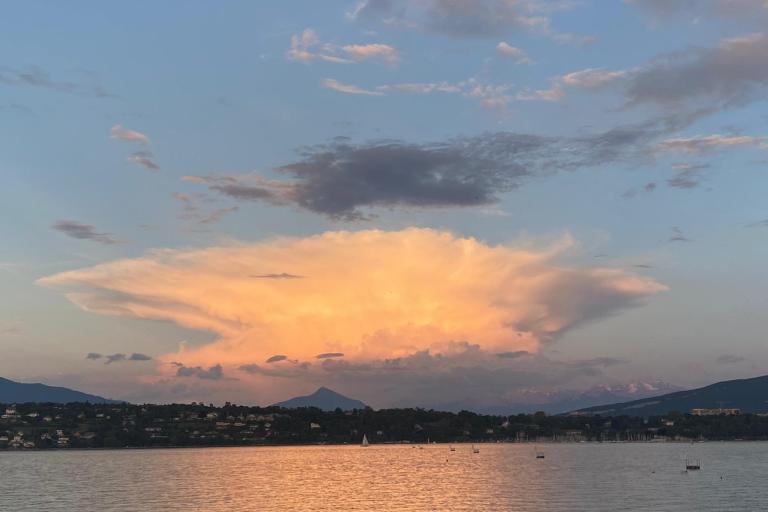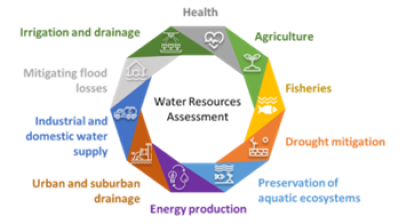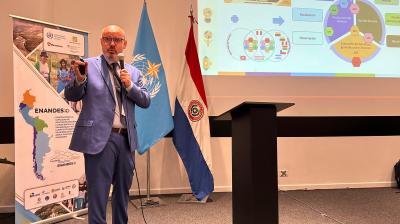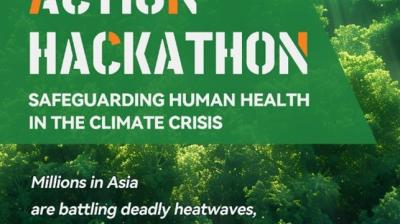WMO Executive Council meets
The World Meteorological Organization’s Executive Council meets in virtual session from 14 to 25 June, with a focus on strengthening and scaling up weather, climate, water and environmental-related services to meet ever growing needs. It will also discuss a major update to WMO’s data policy, closing the gap in the global observing system and a plan of action for hydrology.
The World Meteorological Organization’s Executive Council meets in virtual session from 14 to 25 June, with a focus on strengthening and scaling up weather, climate, water and environmental-related services to meet ever growing needs. It will also discuss a major update to WMO’s data policy, closing the gap in the global observing system and a plan of action for hydrology.
The outcomes of the Executive Council will help sharpen the WMO contribution to the global agenda on disaster risk reduction, sustainable development and climate change. The Executive Council will evaluate progress in reform of WMO’s structure to make it more streamlined and fit for purpose to face the challenges and opportunities of the 21st century. It will also discuss a comprehensive review of the WMO regional concept and approaches
“Globally, the need for WMO expertise has been growing for the past few years,” said WMO Secretary-General Prof. Petteri Taalas. He cited WMO’s monitoring of rising greenhouse gas concentrations and resultant climate change indicators and impacts including more extreme weather and water-related hazards.
“Only half of 193 WMO Members have state of the art multi-hazard early warning services to meet the challenge of more extreme weather. Severe gaps in data and weather observations, especially in Africa and island states, have a major negative impact on the accuracy if the early warnings in those areas and globally. We need to invest in the basic networks,” said Prof. Taalas.
In order to meet the growth in demand for services and forecasts, it is paramount to improve the exchange of weather, climate, water and ocean data and to attract sustainable investment of a global observing, said Prof. Taalas. Collaboration with the private sector will be key in this through the ongoing Public-Private Engagement strategy.
Funding for climate change adaptation will also be vital and WMO will continue initiatives to strengthen resilience, he said. It will also set up a new centre of excellence for disaster risk reduction to increase support for the U.N. humanitarian system, and establish a new Water and Climate coalition to ensure an integrated approach to water-related challenges of climate change, said Prof. Taalas.
Climate Change
Ahead of the EC session, Prof. Taalas held talks with Alok Sharma, President of the United Nations climate change negotiations, COP26, due to take place in
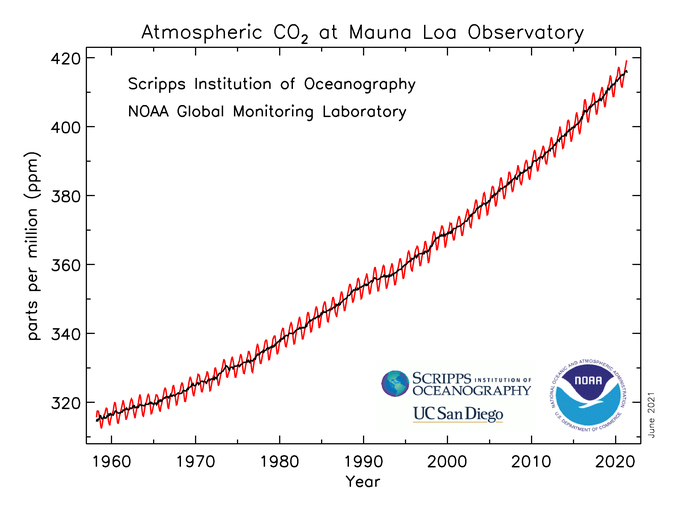
Glasgow, UK, in November. He stressed that WMO will play an active role in providing advice on climate change adaptation and mitigation.
Climate change was high on the agenda of the leaders of the Group of Seven meeting hosted by the United Kingdom 11-13 June.
“The unprecedented and interdependent crises of climate change and biodiversity loss pose an existential threat to people, prosperity, security, and nature,” said the concluding communique issued by the G-7.
“We commit to accelerating efforts to cut greenhouse gas emissions and keep the 1.5°C global warming threshold within reach, strengthening adaptation and resilience to protect people from the impacts of climate change, halting and reversing biodiversity loss, mobilising finance and leveraging innovation to reach these goals,” it said.
There is about a 40% chance of the annual average global temperature temporarily reaching 1.5°C above the pre-industrial level in at least one of the next five years – and these odds are increasing with time, according to a recent climate update issued by WMO and produced by the United Kingdom’s Met Office, the WMO lead centre for such predictions.
Climate change indicators remain grim. The monthly average CO2 concentration at Mauna Loa observatory, the world's benchmark atmospheric monitoring station, reached a new record 419.13 parts per million in May, up from 417.31 ppm in May 2020. This is according to figures released by the US National Oceanic and Atmospheric Administration and the Scripps Institution of Oceanography.
Unified Data Policy

Climate change, increasing frequency and impact of extreme weather have contributed to an explosive growth in the demand for weather, climate and water monitoring and prediction data to support essential services needed by all sectors of society.
The free and unrestricted exchange of observational data from all parts of the world and of other data products among all WMO Members must be updated and strengthened to accommodate this growing demand from application areas beyond the traditional weather, climate and water activities. WMO data policy must therefore evolve to accommodate areas such as atmospheric composition, oceans, cryosphere and space weather.
EC will consider a proposed data policy update, which will help the WMO community strengthen and better sustain monitoring and prediction of all Earth-system components, with massive socioeconomic benefits as a result. It will lead to additional exchange of all types of environmental data, which in turn will enable all WMO Members to deliver better, more accurate and timely weather- and climate-related services to their constituencies.
Observations
The Global Basic Observing System seeks to improve the availability of the most essential surface-based data, which will have a direct positive impact on the quality of weather forecasts, thus helping improve the safety and well-being of citizens throughout the world.
The proposed Systematic Observations Financing Facility (SOFF) aims to support the most vulnerable countries to fill the observations data gaps and to maintain the observing systems in the long term. Filling the observations data gaps in Small Islands Developing States (SIDS) and Least Developed Countries (LDCs) over an initial 5-year period is estimated to require USD 400 million. The intention is to announce SOFF at COP26 in November 2021 with an initial commitment of USD 200 million and another USD 200 million to be raised subsequently.
Water and Climate Coalition
EC will examine a proposed decadal Vision and Strategy for Hydrology as an integral part of the WMO’s Earth system approach and an Action Plan with eight long-term ambitions. It will discuss a new Water and Climate Coalition spearheaded by WMO to address water challenges. Ten UN agencies are interested in joining the coalition, which is championed by a Water and Climate Leaders Group.
More than 2 billion people live in water stressed regions today and climate change impacts will further increase our vulnerability to water‑related disasters and thegap in future water availability for societal needs and a healthy planet.
Other agenda items include:
- Disaster risk reduction services, including new methodology for cataloguing hazardous events, multi-hazard early warnings, integrated health services.
- Implementation of WMO Integrated Global Observing System and its associated components, including the Global Cryosphere Watch programme.
- Ocean - Collaborative Board strategy between WMO and Intergovernmental Oceanographic Commission of UNESCO
- Research, science and innovation
- Capacity development
- Review of the ongoing WMO reform, including a comprehensive review of the WMO regional concept and a ‘back to basics’ approach to ensuring the continued delivery and implementation of the priorities of WMO members.
EC Composition
The Executive Council coordinates programmes, manages the budget, considers and acts on resolutions and recommendations from the regional associations and technical commissions, and studies and makes recommendations on matters affecting international meteorology and related activities.
The Executive Council normally holds a session at least once a year. It comprises the WMO president and three vice-presidents, the six regional association presidents and 27 directors of National Meteorological or Hydrometeorological Services elected by Congress. Six acting EC members were approved.


